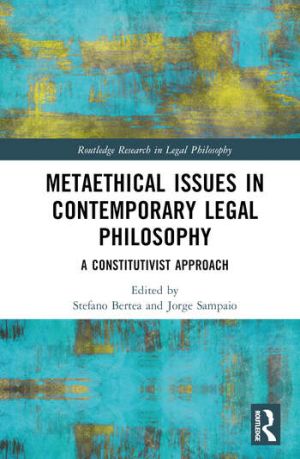
This volume explores the importance of constitutivism for legal studies. Constitutivism is the view that the normative force, or authority, of practical reasons is grounded in principles, capacities, aims, or functions that are essential to, and thus constitutive of, agency. While the implications that the constitutivist approach has on the fundamental meta-ethical disputes and central ethical debates have been extensively explored, the literature on the relations between constitutivism and law remains scarce, unsystematic and sporadic. This collection brings together world-renowned practical philosophers and legal theorists to fill a noticeable gap in the literature. The authors systematically and innovatively address key dimensions of the relationships between constitutivism and the theoretical study of law, as well as programmatically offering novel insights into the conceptual connections between constitutivist claims, fundamental legal concepts and practices, legal issues, and, ultimately, the law as a distinctive concept.
The book will be of interest to academics and researchers working in the areas of Legal Philosophy, Legal Theory, Jurisprudence, Moral Philosophy and Meta-ethics.